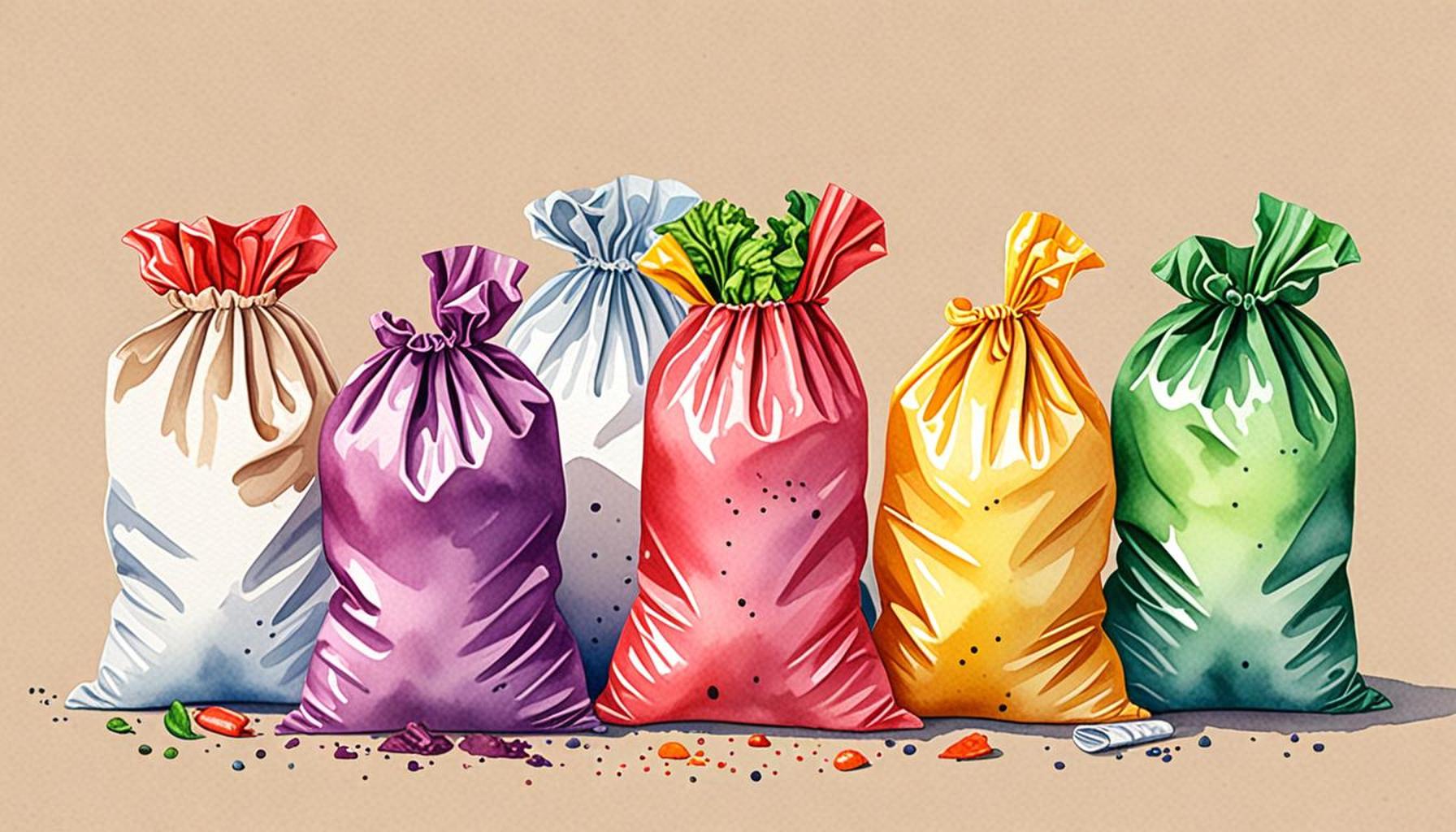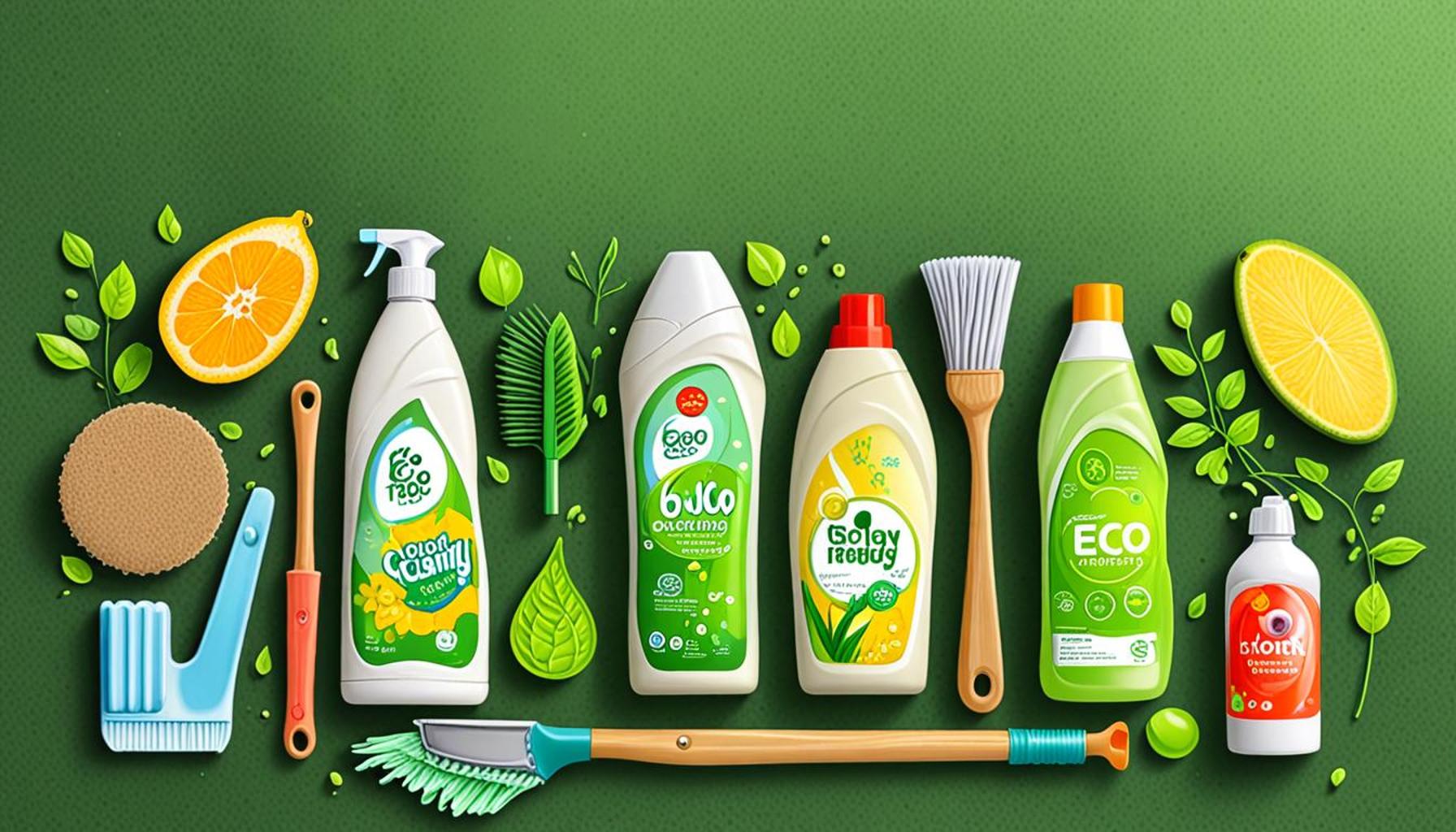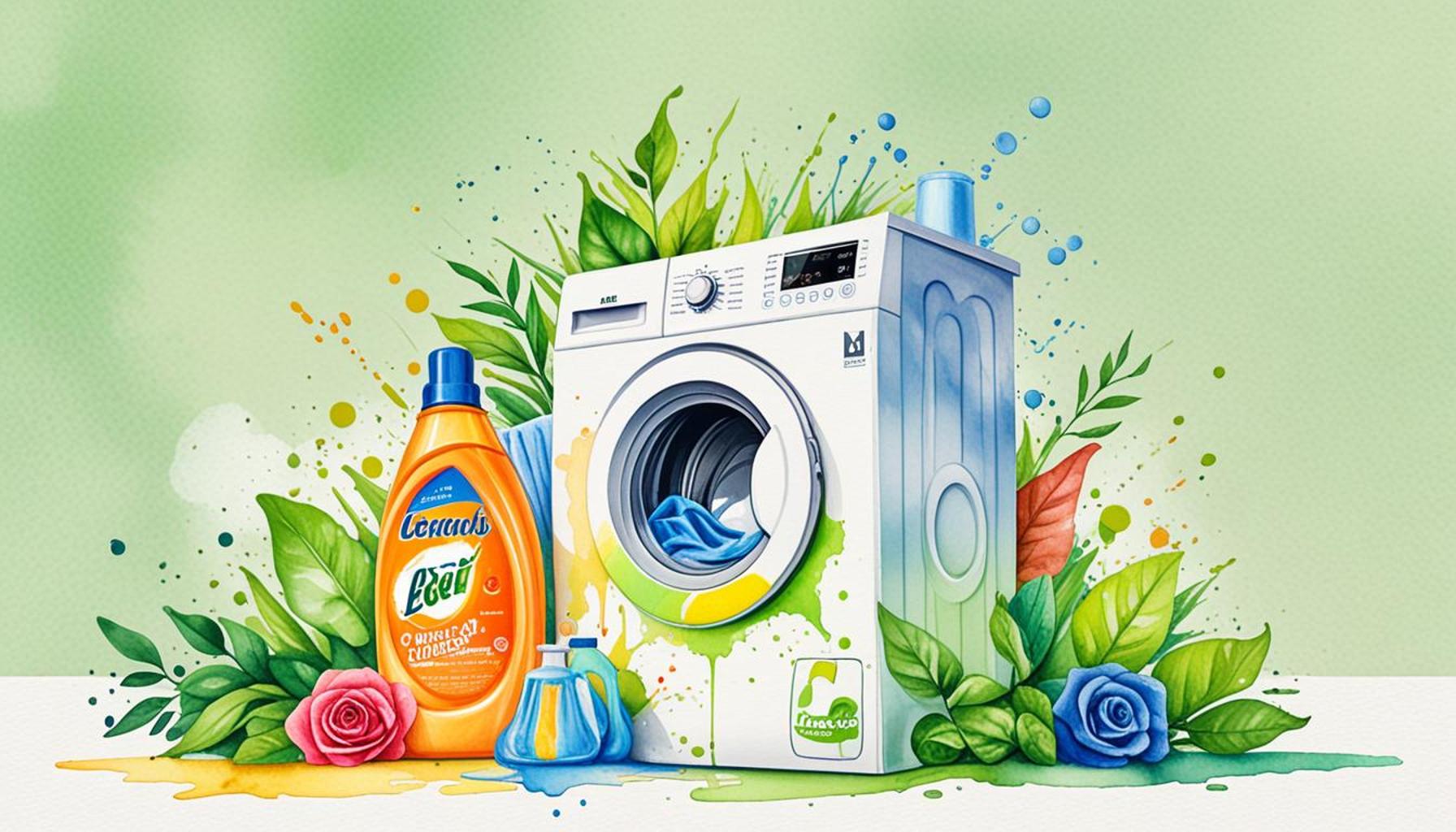Compostable Trash Bags Eco-Friendly and Worth the Investment

The Shift Towards Eco-Friendly Solutions
With environmental concerns gaining momentum, many individuals and businesses are seeking alternatives to traditional plastic garbage bags. Compostable trash bags emerge as a promising solution, boasting eco-friendly attributes that appeal to the conscious consumer.
These bags are specifically designed to decompose naturally. Unlike their plastic counterparts, which can take centuries to break down, compostable bags typically break down into organic matter, enriching the soil and contributing to the composting process. The inherent benefits of these bags include:
- Biodegradability: Unlike conventional plastics, compostable trash bags break down into natural substances like water, carbon dioxide, and biomass under specific conditions. This process can occur within weeks to months, depending on the environment.
- Sustainability: Many compostable bags are crafted from renewable resources such as corn starch, sugarcane, or other plant-based materials. This not only reduces the reliance on fossil fuels but also supports sustainable agricultural practices.
- Less Pollution: The production and disposal of compostable bags generate significantly lower greenhouse gas emissions compared to traditional plastic bags. This can contribute to a cleaner atmosphere and lower carbon footprints.
These compelling features raise the question: Are compostable trash bags really worth the investment? As they are often more expensive than conventional plastic options, a deeper understanding of their long-term advantages is crucial.
In the United States, where the average household generates over 4 pounds of trash daily, transitioning to compostable products can make a significant impact. Households striving for sustainable practices or businesses enhancing their green image can find themselves at the forefront of a necessary environmental evolution.
Benefits and Considerations
While the benefits of compostable trash bags are clear, it is also essential to consider certain factors. For instance, compostable bags require specific composting conditions—industrial composting facilities provide the heat and humidity needed for effective decomposition, which may not be available in all areas. Without access to these facilities, users may find that their bags merely end up in landfills, where they may not break down effectively.
Moreover, consumers should be cautious about labeling. Not all bags labeled as “biodegradable” or “compostable” are created equal. Standards and certifications, such as ASTM D6400 or EN 13432, can help consumers identify genuine compostable products. Studies show that products meeting these standards truly break down in industrial composting environments.
This article delves deeper into the fundamentals, benefits, and potential downsides of compostable trash bags, helping you make an informed choice for a cleaner, greener future. As various options flourish in the market, staying informed will aid you in selecting products that align with your ecological goals and values.
SEE ALSO: Click here to read another article
The True Value of Compostable Trash Bags
When considering sustainability, the ecological footprint of everyday products often comes into play. Compostable trash bags are no exception, and understanding their true value goes beyond merely weighing price against performance. While they may initially seem like a higher investment compared to standard plastic bags, it’s essential to recognize the nuanced advantages they offer for both the environment and your daily life.
One of the most significant advantages of compostable trash bags lies in their capacity to reduce waste. In the United States, approximately 292.4 million tons of trash were generated in 2018, with a substantial portion comprising single-use plastics. By substituting traditional plastic bags with compostable alternatives, each individual can contribute to a reduction in waste that ultimately ends up in landfills. This shift echoes a growing collective movement towards minimizing single-use plastics and embracing circular economy principles.
Furthermore, adopting these eco-friendly bags can enhance composting efforts at home. If you maintain a compost bin, using compostable bags can simplify the process of collecting biodegradable waste such as fruit peels, vegetable scraps, and yard debris. Unlike plastic bags, which must be removed from compostable waste prior to processing, compostable bags can go directly into the compost bin, breaking down naturally and enriching the compost pile.
Key Considerations for Compostable Trash Bags
Despite their clear environmental benefits, potential users should remain aware of specific considerations. Here are some critical points to keep in mind:
- Composting Conditions: Compostable bags thrive in industrial composting facilities where optimal temperature and moisture levels are maintained. If local facilities are not accessible, consumers may find their bags unable to decompose effectively in landfills, often taking as long as traditional plastic.
- Proper Usage: For compostable bags to serve their purpose, they must be used correctly. Mixing them with non-biodegradable waste or unsuitable materials can hinder their ability to break down. Proper sorting becomes vital in ensuring a green waste strategy.
- Recognizing Authentic Products: Not all compostable bags are created equal. It’s essential to look for brands that comply with industry standards like ASTM D6400 or EN 13432, ensuring they meet rigorous requirements for compostability. Misleading labels can often confuse consumers and lead to ineffective waste practices.
As the market for eco-friendly products expands, the selection of compostable trash bags continues to grow. By being well-informed, consumers can make educated choices that align with their environmental values, illuminating the path towards a more sustainable future. With each decision to switch to compostable options, we take meaningful steps towards reducing our plastic dependency and promoting a healthier planet.
| Advantages | Description |
|---|---|
| Eco-Friendly Material | Compostable trash bags are made from materials that break down naturally, minimizing pollution and reducing landfill waste significantly. |
| Cost-Effective in the Long Run | Though they may cost slightly more upfront, their durability ensures fewer bags are needed over time, making them a wise investment. |
| Odor Control | The materials used in compostable bags help in controlling odors, making them ideal for food waste and organic materials. |
| Versatility | These bags are not only suitable for kitchen waste but can also be used for yard waste, pet waste, and general garbage, adding to their functionality. |
The demand for compostable trash bags is on the rise due to increasing environmental awareness. As consumers seek sustainable products, these bags represent a practical solution that aligns with eco-friendly lifestyles. The incorporation of biodegradable materials signifies a crucial step towards a greener planet, promoting responsible consumption. Not only do compostable bags help in reducing the carbon footprint associated with traditional plastic waste, but they also contribute to the formation of nutrient-rich compost, a beneficial addition to soil health. With various sizes and strengths available, these bags can accommodate different types of waste, further enhancing their appeal. Ultimately, adopting compostable trash bags is a commitment to sustainability that resonates well with eco-conscious individuals and families. Explore more about their benefits and how they can enhance your waste management practices today!
CHECK OUT: Click here to explore more
The Broader Impacts of Choosing Compostable Trash Bags
In an era where environmental consciousness is gaining momentum, the choice to use compostable trash bags signifies personal commitment to sustainability. However, the implications of this decision stretch beyond individual actions and responsibilities. By recognizing the broader impacts of compostable bags, consumers can see their potential influence on community practices and the larger ecosystem.
Supporting Local Economies and Green Initiatives
Investing in compostable trash bags often correlates with supporting local businesses, as many eco-friendly brands prioritize sustainability in their supply chains. By purchasing these products, consumers are not only contributing to environmental health but are also fueling a burgeoning sector of green entrepreneurship. In 2020, the global biodegradable bags market was valued at approximately $2.5 billion, and it is anticipated to reach $5.5 billion by 2027, demonstrating that eco-conscious choice can stimulate economic growth.
Furthermore, as demand for compostable alternatives increases, communities may find themselves more motivated to develop infrastructure that supports composting, such as municipal programs or community gardens that utilize compost. Communities dedicated to enhancing their waste management systems often see a decrease in waste sent to landfills, elevating overall waste diversion rates.
Fostering Educational Opportunities
The choice to use compostable bags can also spur educational opportunities. Schools and organizations that adopt composting practices often implement programs to educate students and the public about the significance of composting and sustainable living. For instance, in 2019, a study demonstrated that implementing composting initiatives in schools led to a 45% reduction in waste. These programs encourage deeper engagement with ecological issues and inspire the next generation to adopt sustainable practices early on.
The Role of Compostable Trash Bags in Climate Change Mitigation
The impact of compostable trash bags extends to climate change mitigation. Traditional plastic bags take centuries to decompose, releasing harmful greenhouse gases and contributing to soil and water pollution during their degradation. In contrast, compostable bags break down into organic material that can actually enhance soil quality and carbon sequestration processes. By choosing compostable options, consumers play a critical role in reducing the carbon footprint attributed to plastic waste.
Innovations in Bioplastics: The Future of Compostable Products
As technology advances, so do the innovations within the bioplastic sector. Many companies are now exploring alternative raw materials, such as algae and agricultural waste, to create more efficient and biodegradable products. These innovations are only possible through a society that embraces compostable trash bags and other sustainable options. With increased investment in eco-friendly technologies, the potential for future products that further reduce reliance on traditional plastics becomes increasingly viable.
In conclusion, the investment in compostable trash bags goes beyond the immediate personal environmental benefits. By choosing these bags, consumers can cultivate community growth, support local economies, educate others, contribute to climate change mitigation, and stimulate innovation. Each use of a compostable bag weaves a narrative of change and commitment, painting a hopeful picture for a more sustainable future.
CHECK OUT: Click here to explore more
Conclusion: Embracing a Sustainable Future with Compostable Trash Bags
As consumers increasingly seek eco-friendly alternatives, compostable trash bags emerge as a vital component of sustainable living strategies. Choosing these bags is not merely a personal decision; it reflects a broader commitment to environmental stewardship that ripples through communities, economies, and ecosystems. By opting for compostable options, individuals contribute to reducing the staggering amounts of plastic waste that pollute our landfills and oceans, while simultaneously supporting local businesses dedicated to sustainability.
The educational opportunities that arise from using compostable bags encourage a culture of awareness and responsibility, helping to instill sustainable practices in future generations. New advancements in bioplastics pave the way for innovative solutions that align with nature’s regenerative processes, heralding a future where waste is minimized, and resources are reused.
Investing in compostable trash bags is indeed a worthwhile endeavor, as it demonstrates a commitment to making a positive impact on the environment and society. As the market for these products continues to expand, each purchase acts as a vote for cleaner, greener practices. By embracing compostable bags today, we are not only addressing pressing climate issues but are also paving the way for a more sustainable tomorrow—where the health of our planet and its inhabitants comes first. In this context, the choice becomes clear: compostable trash bags are not just eco-friendly; they are an essential investment in our shared future.



